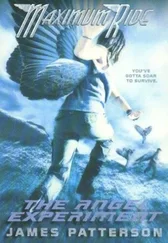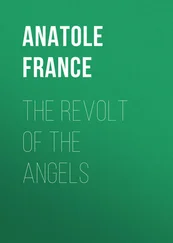Yukio Mishima - The Decay Of The Angel
Здесь есть возможность читать онлайн «Yukio Mishima - The Decay Of The Angel» весь текст электронной книги совершенно бесплатно (целиком полную версию без сокращений). В некоторых случаях можно слушать аудио, скачать через торрент в формате fb2 и присутствует краткое содержание. Год выпуска: 2010, Издательство: CCV Digital, Жанр: Старинная литература, на английском языке. Описание произведения, (предисловие) а так же отзывы посетителей доступны на портале библиотеки ЛибКат.
- Название:The Decay Of The Angel
- Автор:
- Издательство:CCV Digital
- Жанр:
- Год:2010
- ISBN:нет данных
- Рейтинг книги:5 / 5. Голосов: 1
-
Избранное:Добавить в избранное
- Отзывы:
-
Ваша оценка:
- 100
- 1
- 2
- 3
- 4
- 5
The Decay Of The Angel: краткое содержание, описание и аннотация
Предлагаем к чтению аннотацию, описание, краткое содержание или предисловие (зависит от того, что написал сам автор книги «The Decay Of The Angel»). Если вы не нашли необходимую информацию о книге — напишите в комментариях, мы постараемся отыскать её.
The Decay Of The Angel — читать онлайн бесплатно полную книгу (весь текст) целиком
Ниже представлен текст книги, разбитый по страницам. Система сохранения места последней прочитанной страницы, позволяет с удобством читать онлайн бесплатно книгу «The Decay Of The Angel», без необходимости каждый раз заново искать на чём Вы остановились. Поставьте закладку, и сможете в любой момент перейти на страницу, на которой закончили чтение.
Интервал:
Закладка:
“Yes, it’s true. Only a beautiful woman can really know, and she sees it in the eyes of a man, the ugliness of the world, the way the real shape of a human being gets lost.” Each time Kinué used the word “beautiful” it was as if she were mustering up all the saliva she had in her and spitting it out. “It’s a beautiful woman that keeps hell at a distance. She gets these nasty things from the other sex and spite from her own, and she smiles and calls it fate. That’s what a beautiful woman is. It’s really a shame. Nobody knows what a shame. It’s a misfortune only somebody as beautiful as she is can understand, and there’s not a single person that can really sympathize. It makes my skin crawl when another woman says she wishes she were as beautiful as I am. Those people will never understand our misfortunes. Never. How can they be expected to understand the loneliness of a jewel? But then a diamond is always being washed clean by dirty greed and I am always being washed clean by dirty ideas. If people really knew what it is like to be beautiful, why all the beauty parlors and plastic surgeons would go broke. The ones who think it’s good to be beautiful are the ones who aren’t. Isn’t it the truth?”
Tōru was rolling a hexagonal green pencil between his fingers.
Kinué was the daughter of a wealthy landowner. She had been somewhat strange since an unfortunate love affair, and she had been in a mental hospital for six months. She had a curious syndrome described as delirious depression or depressed intoxication or something of the sort. There had been no serious outburst since, and it had settled into a conviction that she was the most beautiful girl in the world.
Because of the delusion, she had been able to break the mirror that so tormented her and fly off into a mirrorless world. Reality became malleable, selective, a seeing of what was desirable and a rejection of everything else. The guiding principle would for most people have been a tightrope inviting almost certain disaster, but it brought her no complications and no sense of danger. Having thrown the old plaything of self-awareness into the garbage can, she had started to make a new plaything of wonderful ingenuity and intricacy, and now she had adapted it perfectly to her needs and set it to work like an artificial heart. When she had finished shaping it, Kinué had attained perfect happiness; or, as she would have put it, perfect unhappiness.
Probably the romantic misfortune had come about when a man made mention of her ugliness. In that instant Kinué saw the light down her only road, the defile open to her. If she could not change her own looks, then she must change the world. She set to work on her own secret plastic surgery and achieved a reversal, and a gleaming pearl emerged from the ugly, ashen shell.
Like a beleaguered soldier finding an escape, Kinué came upon a basic but elusive link with the world. With that as her fulcrum, she stood the world upside down. A most extraordinary revolution. Exquisite craftiness in taking for misfortune what in her heart she desired above all.
His way of holding a cigarette somewhat old for his years, Tōru leaned back and stretched out long legs in blue jeans. He found nothing the least novel in her discourse, but he gave not a sign that he was bored. Kinué was very sensitive to her audience.
He never made fun of her as her neighbors did. That was why she visited him. He felt in this mad, ugly woman five years his senior a comrade in apartness. He liked people who refused to recognize the world.
If the hardness of the two hearts, the one protected by lunacy, the other by awareness—if the degree of hardness was about the same, then there need be no fear of wounds, however much they brushed against each other. Nor need there be a fear of carnal brushes. Kinué was now most off her guard. When Tōru got up with a creaking of his chair and moved toward her in great strides, she let out a shriek and ran for the door.
He was hurrying to the telescope. His eye glued to it, he waved a hand behind him.
“Work to do. Go on home.”
“I’m sorry. I didn’t mean it. I really believe you’re not like other men, but you caught me by surprise. I’ve had such awful things happen to me, and when a man stands up all of a sudden I think it’s happening again. You must understand that I live in constant fear.”
“It’s all right. Go on home. I’m busy.”
“I’ll go. But—”
“What is it?” His eye still on the telescope, he sensed that she was hesitating at the top of the stairs.
“I—I have a great deal of respect for you. Well, good-bye.”
“Good-bye.”
There were footsteps and the sound of a closing door. Tōru followed a light with the telescope.
He had glanced out the window as he listened to Kinué and caught a sign. Though it was cloudy there were lights scattered up and down the west Izu hills; and when the sign of an approaching ship came in among the lights of the fishing boats there came a faint, suspicious change like a spark in darkness.
The Nitchō-maru was not due for almost an hour. But one should not trust ships to keep their appointments.
Off in the obscurity, in the circle of the telescope, crawling along like a bug, were the lights of a ship. One cluster became two. The ship had changed direction, and the stern and prow lights separated. To judge from the distance and the lights at the bridge, it would not be a fishing boat of some hundreds of tons, but the Nitchō-maru , a good forty-two hundred tons. Tōru already had a practiced eye for reckoning the tonnage of a ship from its length.
As the telescope followed them, its lights moved away from the distant lights of Izu and the fishing boats. With grand confidence it pressed forward on its sea route.
It came like shining death, casting bridge lights into the water. By the time he could clearly make out in the night, sketched in port and stern and deck lights, the form of a ship, that special form of a cargo ship, like a complex old ceramic piece, Tōru was at the signal light. He adjusted it by hand. If his signals were too fast, the ship would have trouble making them out, and if they were too full, the southeast pillar of the building might block out a part of them. And because recognition and quickness of response were moreover not easy to foresee, timing was not at all easy.
Tōru turned on the switch. Light leaked faintly from the old blinker. There were binoculars on top of it, like the eyes of a frog. The ship floated upon a round space in the dark night.
Tōru sent out three hallos. Dot-dot-dot-dash-dot. ∗Dot-dot-dot-dash-dot. Dot-dot-dot-dash-dot.
There was no response.
He again signaled three times.
A dash. It was like an oozing from beside the bridge.
He could feel the resistance of the distant shutter.
“Your name?”
Dot-dash-dash-dot, dot-dash-dot-dash-dot, dash-dot-dot-dot-dash, dot-dash, dash-dot-dot-dot.
After that initial dash, the name of the ship, phantom-like.
Dash-dot-dash-dot, dot-dash-dash-dot, dot-dot-dash-dot, dash-dash, dot-dot-dash, dash-dot-dot-dash, dash-dot-dash-dash-dot.
It was the Nitchō-maru , without question.
There was a wild restlessness in the long and short lights, as if in among the clusters of solid lights a single light were mad with joy. The voice calling out from afar over the dark sea was like the voice of the madwoman. A metal voice crying out sadly though not sad, pleading an agony of joy. It only reported the name of a ship, but the infinitely disturbed voice of light also conveyed in each fragment the irregularity of an overexcited pulse.
The signals would probably be from the hand of the second mate, on watch. Tōru could sense in the signals from a bridge the feelings of a second mate returning home. In that distant room, heavy with the smell of white paint, bright with the brass of compass and wheel, there would be the weariness of the long voyage and the lingering sun of the south. The return of a ship, battered by winds and its own cargo. A professionalism containing a masculine languor. A trained swiftness, and all the red-eyed intensity of a homecoming. Two bright lonely rooms faced each other across the dark sea. And as communication was struck up, the existence of another human spirit out in the darkness was like a ghost-light in the sea itself.
Читать дальшеИнтервал:
Закладка:
Похожие книги на «The Decay Of The Angel»
Представляем Вашему вниманию похожие книги на «The Decay Of The Angel» списком для выбора. Мы отобрали схожую по названию и смыслу литературу в надежде предоставить читателям больше вариантов отыскать новые, интересные, ещё непрочитанные произведения.
Обсуждение, отзывы о книге «The Decay Of The Angel» и просто собственные мнения читателей. Оставьте ваши комментарии, напишите, что Вы думаете о произведении, его смысле или главных героях. Укажите что конкретно понравилось, а что нет, и почему Вы так считаете.











